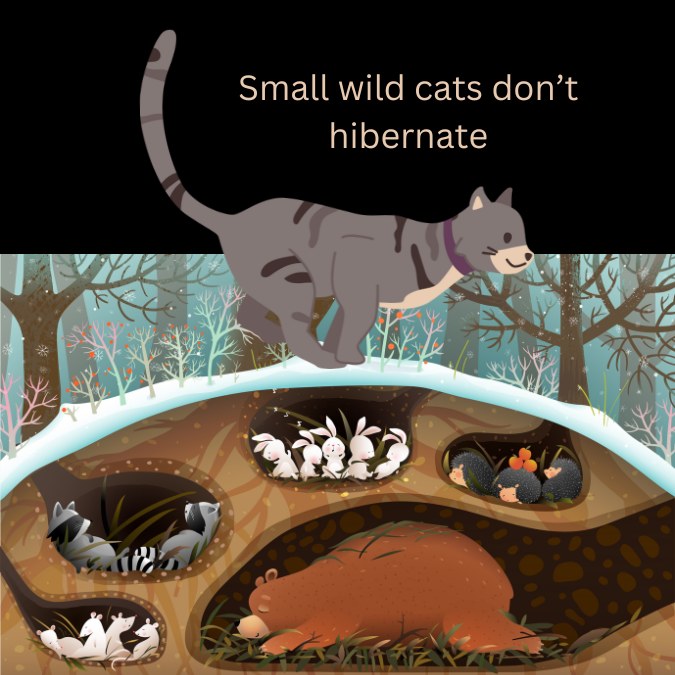
No. Small wild cat species do not hibernate. You may know that animal hibernation evolved to improve the survival of certain species by conserving energy through lowering their basal metabolic rate in response to a lack of resources during the winter months. The “basal metabolic rate” means the body’s minimum energy consumption necessary to stay alive.
RELATED: Where do small wild cats live?
The bear is the animal we think of when we think of hibernation. I have learned that hummingbirds enter a state of torpor at night as temperatures drop and they become reactivated when the temperature rises.
Some mammals enter hibernation for months at a time normally in locations which have high latitudes or at high elevations.
The bottom line is that hibernation occurs because the animal cannot maintain the required elevated metabolic rate to maintain body temperature because the resources aren’t available. An alternative way to survive is required.
The small wild cat species don’t have a problem with resources because most prey animals of the small cats do not hibernate. They don’t enter into a state of torpor because one or more of their prey animals are available throughout the year. It’s as straightforward as that.

